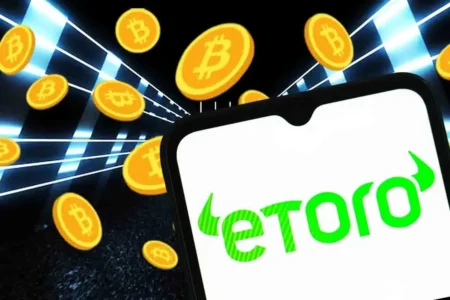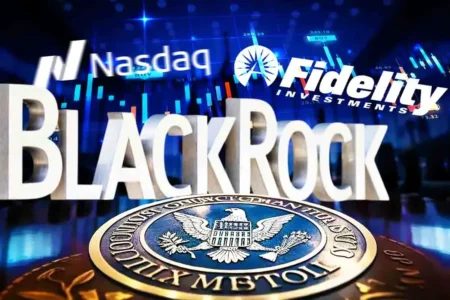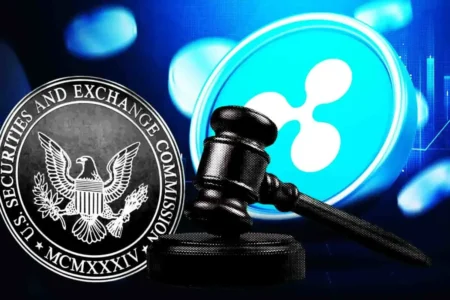Tensions Erupt Over Crypto Regulation: Waters Challenges Bipartisan Bill
In a recent joint hearing of the House Financial Services Committee and the House Agriculture Committee, tensions soared as Representative Maxine Waters voiced vehement objections to a proposed crypto market structure bill. This legislation, which enjoys bipartisan backing, aims to clarify oversight responsibilities in the rapidly evolving digital asset sector. However, Waters characterized the bill as a vehicle for "Trump’s crypto corruption," alleging ulterior motives that could compromise the integrity of financial regulations.
The Crypto Market Structure Bill: A Point of Contention
Waters challenged the timing and objectives of the crypto market structure bill, imploring her fellow Democrats to stage a walkout in protest. Despite its bipartisan support, she expressed concerns that the legislation could open doors to unethical financial activities associated with former President Donald Trump. Her assertion during the hearing illuminated broader apprehensions among certain lawmakers regarding the implications of the bill for future regulations governing digital assets. As both parties collaborate on frameworks for digital asset oversight, Waters’ dissent underscores a growing skepticism surrounding the proposed measures.
Opposition to the GENIUS Act Gains Momentum
As the crypto market structure bill continues to spark debate, its counterpart, the GENIUS Act (Guiding and Establishing National Innovation for US Stablecoins), is also facing intensified scrutiny. Nine Democratic senators, previously supportive of the bill, have withdrawn their backing, citing inadequate protections against money laundering, foreign interference, and issues of national security. Notable senators such as Ruben Gallego, Andy Kim, and Elizabeth Warren have issued statements expressing concern over the bill’s potential to inadvertently benefit Trump financially through a linked stablecoin. The rapid shift in support indicates significant unease among legislators regarding the legislation’s ramifications.
Ethical Concerns Surrounding Trump’s Crypto Event
Amidst the backdrop of legislative contention, Donald Trump continues to push a cryptocurrency-themed initiative that has raised ethical eyebrows. The upcoming dinner event at Trump National in Washington D.C. requires attendance based on holdings of a $TRUMP meme token, with the top 220 token holders receiving invitations. Watchdog organizations like Accountable.US have condemned the initiative, characterizing it as a "corrupt self-enrichment scheme." This event raises pressing questions about the intersection of crypto holdings and political influence, particularly in terms of access to Trump.
Links Between the $TRUMP Token and Financial Interests
The $TRUMP token’s development has connections to World Liberty Financial, a crypto firm reportedly linked to the Trump family. Moreover, statements from Zach Witkoff, the son of Trump’s envoy Steve Witkoff, revealed plans for a $2 billion investment in USD1 stablecoin, which is in competition with Tether. The USD1 is issued by World Liberty Financial, a company that’s 60% owned by a Trump-associated entity. Aspects like these have further fueled skepticism regarding whether legislative efforts in the crypto domain genuinely prioritize public interests over private financial gain.
Foreign Influence and Public Interest: A Central Concern
During the joint meeting, Representative Stephen F. Lynch raised concerns about potential foreign financial influence connected to the proposed legislation. He criticized the deal as "shady," suggesting it might pave the way for foreign actors to infiltrate the U.S. financial system via crypto investments. This sentiment resonates with Waters’ and others’ worries that the crypto market structure bill and the GENIUS Act may primarily support private interests, thereby undermining regulatory safeguards meant to protect the public.
Conclusion: A Crucial Turning Point for Crypto Regulation
As the debate deepens, the future of both the crypto market structure bill and the GENIUS Act hangs in the balance. The objections raised by Waters and other Democratic senators reflect an underlying tension in Congress regarding how best to regulate the burgeoning digital asset landscape. Ethical concerns, particularly those associated with potential financial benefits to Trump and foreign influence, pose significant challenges to achieving a robust regulatory framework. The outcome of this legislative battle will undoubtedly have lasting implications for the integrity and future of the crypto market in the U.S.
















